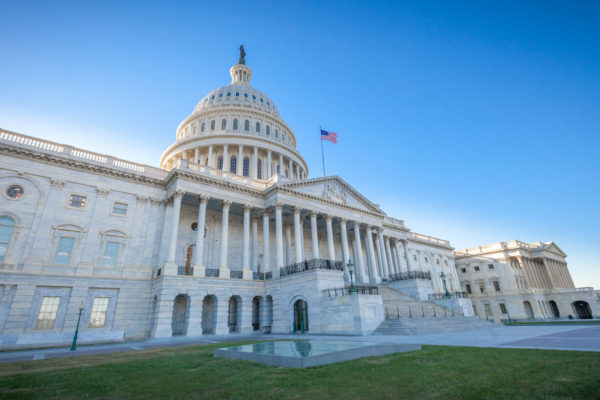For the nation’s founders such as James Madison, the danger of popular tyrannies was a main reason for creating a U.S. Senate that represented the states, and their best leaders, not the mass of ordinary people.
“In these critical moments,” Madison wrote, “how salutary will be the interference of some temperate and respectable body of citizens, in order to check the misguided career, and to suspend the blow meditated by the people against themselves, until reason, justice, and truth can regain their authority over the public mind?”
Drawing the best people from each state, Madison and his contemporaries hoped that the Senate would preserve a reasoned defense of the nation’s true interests, against the passions of any particular moment.
Today, our toxic political climate makes this Senate role more necessary than ever, and more Republican and Democratic senators must step forward to defend our nation and our democracy.
The historical record of the Senate as a deliberative and reasoning legislative body is mixed. And the institution has never been nonpartisan. But it has, from time to time, provided a foundation for building political consensus that transcends the passions of an era. In the years after the Second World War, for instance, Democrats and Republicans in the Senate provided the key votes for the Marshall Plan and the North Atlantic Treaty Organization, despite strong unilateralist and isolationist impulses across the country. In the late 1950s and 1960s, Democrats and Republicans in the Senate came together for the ground-breaking pieces of legislation that protected civil rights, despite pervasive racist violence across the country.
In both periods, popular passions continued to boil, but the Senate pushed forward to serve the nation as whole. Senators played this high-minded role because it is what made the Senate different — more dignified — from the House of Representatives, or even the presidency. To be a senator for Lyndon Johnson or J. William Fulbright or Barry Goldwater or John McCain was to be a conscience of the nation. To be a senator was to be a statesman.
The extraordinary public letter published recently by 44 retired Republican and Democratic senators called on their successors to remember this history. These are not empty words.
The distinguished men and women who have devoted so much to getting elected to the Senate care about the future status and dignity of their chamber. If it abandons its distinguishing purpose, they will be lesser as contemporary and historical figures. They will have less power. They will have a smaller role in our politics and governance.
Members of the Senate from both parties must defend their special role as guardians and conscience of the nation. All the campaign contributions in the world will not buy them that honor, once lost. All the re-elections possible in a lifetime will not give their constitutional role meaning, if discarded.
Instead of assuming otherwise, we should expect what Abraham Lincoln called the “better angels of our nature” to emerge from senators who need that inner strength so desperately these days. We have witnessed their strain as they wiggle away from questions about offensive remarks, lies and possible legal misdeeds. Too much more of this behavior, and our senators will have no Senate left to defend. They will become mere appendages of a combative president, without dignity or influence. No one will listen to them anymore.
The 44 former senators who wrote that letter are providing a powerful wake-up call at a pregnant moment. As the president’s legal troubles deepen and international crises multiply, history is pushing Republican and Democratic members of the Senate to reconsider their future. How will they protect the Senate? How will they preserve their power and dignity within our government?
Madison was correct. In perilous times, the Senate has a special role to play as guardian of the national interest and our most basic democratic values. We must call upon that history. We must all, as citizens, demand acts of statesmanship from those we elect, reminding them of the deeper purpose in their service.
Jeremi Suri holds the Mack Brown Distinguished Chair of Leadership in Global Affairs at The University of Texas at Austin. He is the author of “The Impossible Presidency: The Rise and Fall of America’s Highest Office.”
A version of this op-ed appeared in The Hill.




